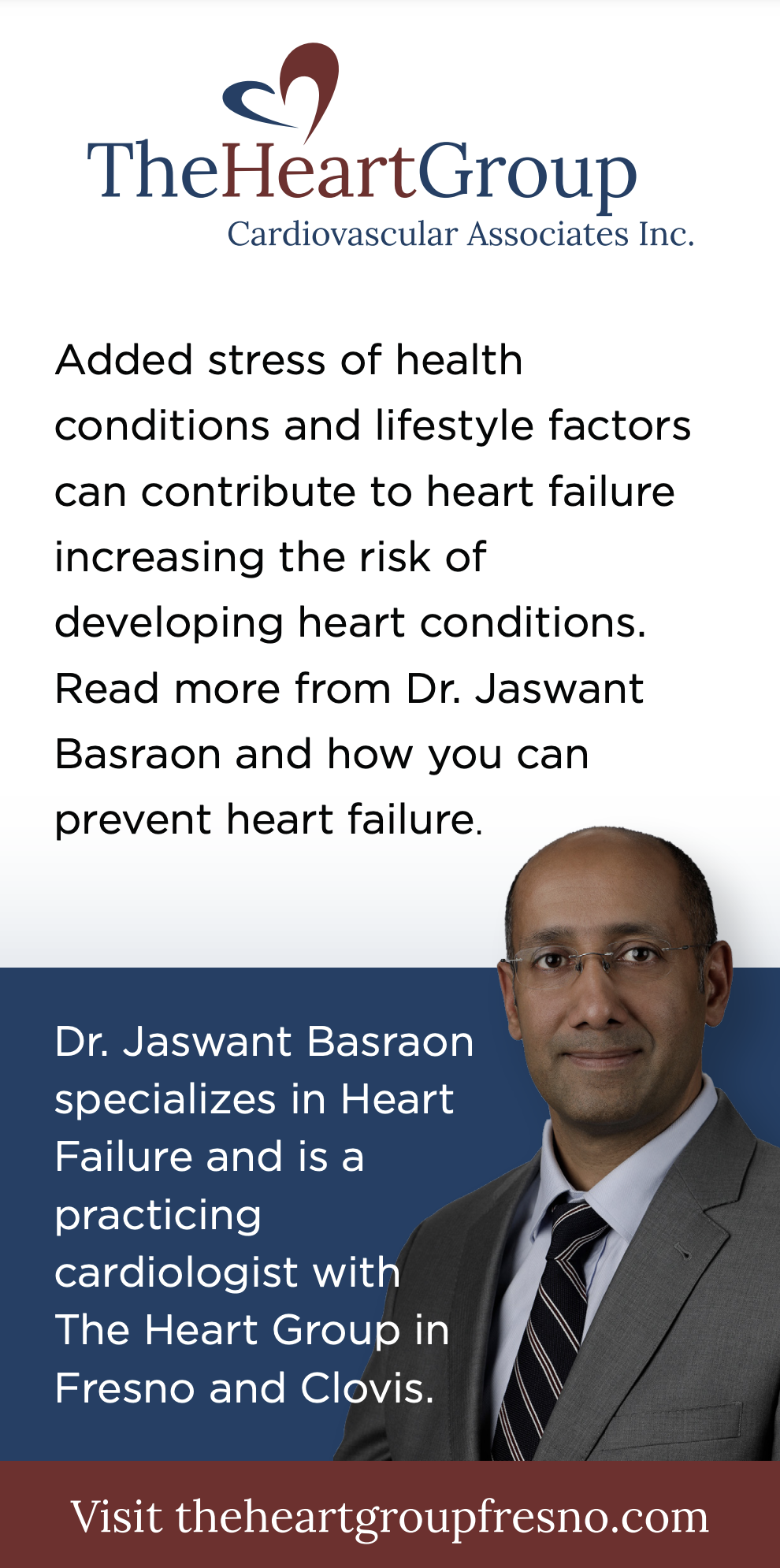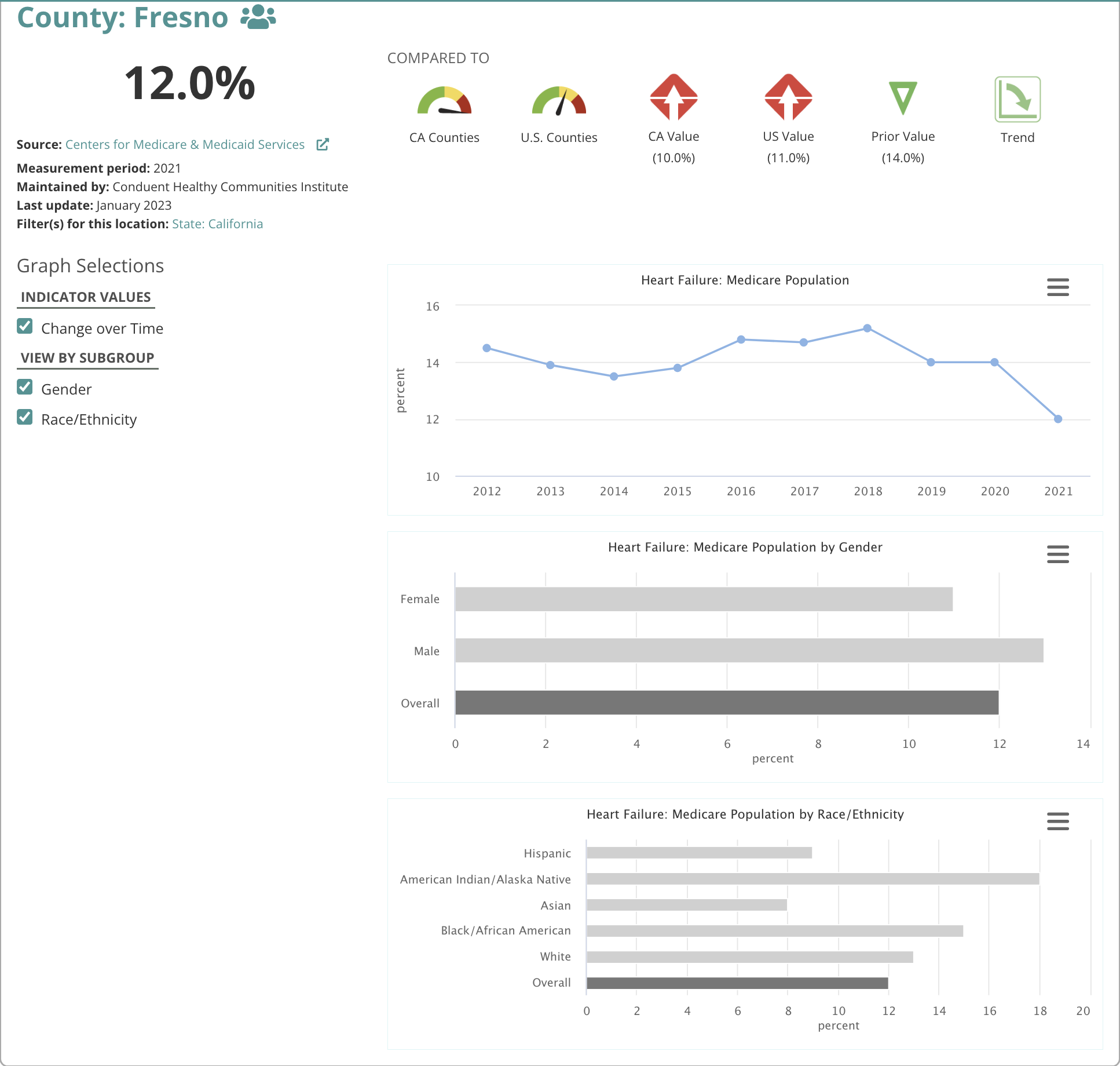
Written by Dr. Jaswant Basraon
The modern American moves at a fast pace, multitasks with efficiency, strategically sets goals for their career and education, and still makes it home for dinner on time (sometimes!). But with the modern American lifestyle and all of its demands, comes risk.
According to the American Heart Association, the added stress of health conditions and lifestyle factors, including smoking, obesity, high fat and high cholesterol diet and physical inactivity, can all contribute to heart failure because they increase the risk of developing heart conditions associated with heart failure.
Shocking statistics reflect the realities of heart failure, like the 5.7 million people in the U.S. who have heart failure, and cost the nation $34.4 billion annually, according to the Centers for Disease Control and Prevention. The National Institute of Health reported that heart failure is most commonly found in people over 65 years old, and the No. 1 reason older individuals are hospitalized.
In Fresno County, data from 2021 reflects a prevalence of approximately 12% of the Medicare population suffers from heart failure, which is in the worst of 25% of California counties (see figure):

What is Heart Failure?
Heart failure is when the heart fails to pump enough blood to the rest of the body, resulting in an increase of pressures within the heart and fluid retention in the limbs or organs. This occurs from a variety of conditions that cause the heart to grow weak, including coronary artery disease, diabetes, heart attack, high blood pressure and congenital heart defects. According to the most recent 2022 guidelines by the American College of Cardiology and the American Heart Association, heart failure is defined as a “complex clinical syndrome with symptoms and signs that result from any structural or functional impairment of ventricular filling or ejection of blood.”
A clinical diagnosis of heart failure requires a thorough assessment of the patient’s history and a physical examination. Clinical presentations can vary–some patients suffer from shortness of breath, congestion in the lungs and swelling of the lower extremities. Patients may have heart failure due to elevated pressures in the heart that is “stiff,” instead of “weak.” Often, heart failure masquerades as pneumonia, or even asthma, so regular physicals are encouraged for every individual.
What Are the Treatments for Heart Failure?
Treatment for heart failure comes down to a combination of things, including lifestyle changes, maintaining a low blood pressure, and medication. If the condition of the heart worsens and is not treated properly, implantation of a mechanical pump or transplant surgery may be necessary.
Patients with weakened hearts are at higher risk for sudden cardiac death and will often need implantable cardiac defibrillators (ICD) and or synchronization of the electrical system of the heart, with BiVentricular devices, which help the heart grow stronger.
A longitudinal relationship with cardiovascular disease specialists (heart failure, electrophysiology, general cardiology), close follow up in specialist clinics, as well as communication with a primary care physician all play an important role in a patient’s health. The heart acts as a pump with a complex electrical system, and patients often require co-management with a cardiologist that specializes in arrhythmias (electrophysiologist) or as we call them the “electricians of the heart.”
The good news is, if treated early and often, many people with heart failure function well and live productive lives. Prognosis and outcome ultimately depend on a favorable response and improvement in the efficiency of the heart, as assessed by the patient’s ejection fraction — an efficiency metric.
If you have any new symptoms such as shortness of breath, fatigue, leg swelling, lethargy, it is important to see your doctor right away to rule out potential heart failure. No matter what your age, your career, your health history, it is always vital to eliminate risk factors and exercise regularly, eat a well-balanced diet low in fat and low in cholesterol, and avoid smoking. Every patient has the power to evaluate their health and make positive choices for a long, healthy life.
About
Dr. Jaswant Basraon specializes in Heart Failure and is a practicing cardiologist with The Heart Group in Fresno and Clovis. He holds staff privileges at Saint Agnes Medical Center, Clovis Community Hospital, Fresno Heart Hospital, and Fresno Surgical Hospital. To learn more about conditions of the heart please visit theheartgroupfresno.com







